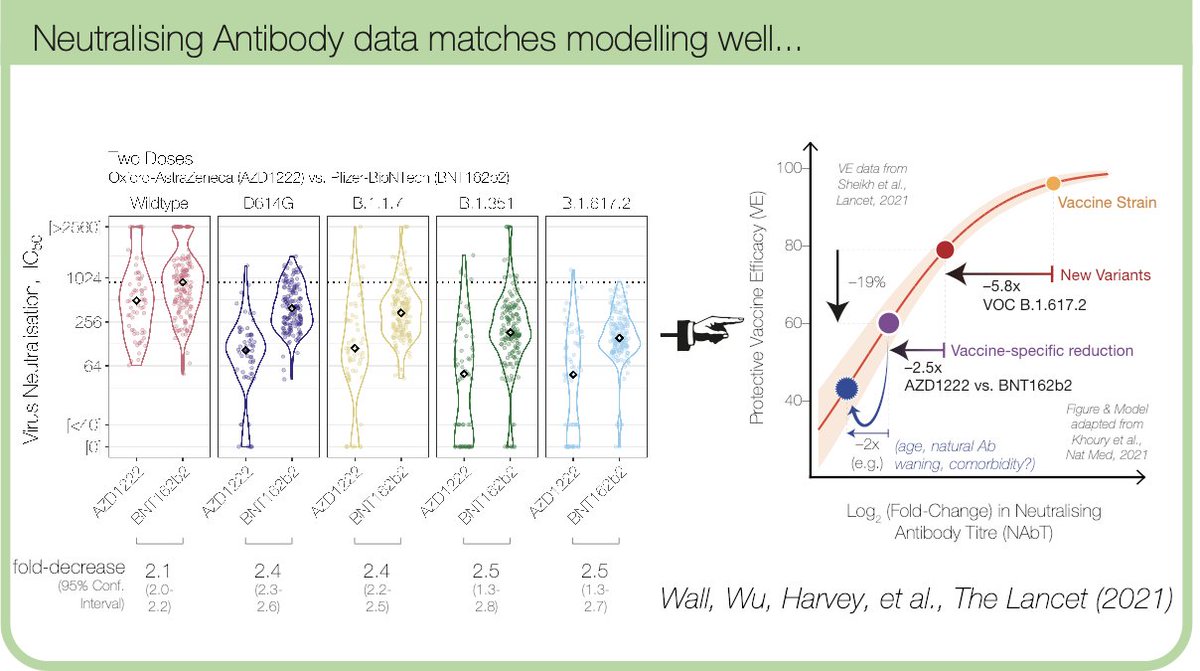
If you don't watch InfoWars (yes, that one) regularly, you might have missed my star turn in the antivax world. To cement the academic cliché, I wrote a Guardian piece about it... theguardian.com/commentisfree/… ... and thought I'd put a few more thoughts here 🧵 1/n
First the apparently obligatory summary. Get vaccinated. Now. Take the afternoon off. Even if you had COVID before. The vaccines are safe. 2/n
One of the things that I find interesting (and didn't make it into the Guardian article) is how much disinformation exists at the interface between traditional media & social media... in this case, a traditional media interview getting cropped and shared 3/n
While tempting to criticise social media, none of the stuff I said "from the horse's mouth" on Twitter gets misquoted... but it is used as a tool to amplify content produced/manipulated and posted on conventional sites. This "ping-pong" makes it hard to stamp out... 4/n
and I have some sympathy for the argument that "policing" social media therefore not feasible (to say nothing of the fact that deleting/blocking/banning is taken as cast iron proof by conspiracy theorists that they are right) 5/n
The other "interface" issue between conventional and online media lies in an insatiable appetite for answers from "experts". Following our papers in June on the Delta variant, I received numerous interview requests from mainstream online outlets with "crystal ball" questions. 6/n
I declined them all, because (a) one paper an expert does not make, and (b) because they were unanswerable without straying into speculation. There are enough scientists engaging in speculation online; I don't think my voice is valuable in that manner 7/n
the "reasonable" virologists I know don't engage in this type of speculation... but the articles still get published. (i.e. someone eventually does answer those interview requests), but to be blunt, they are not usually anyone that I would think of as an "expert" 8/n
Coupled with the ridiculous antivax hijacking etc., I think this is a big part of why so much of the coverage on COVID is crap. cf.
https://twitter.com/andrew_croxford/status/1435180678610661378?s=209/n
I'm fully aware that if antivaxxers want to twist words, they will find someone (i.e. if not our work, then they'll find someone else), and while my inner sociopath thinks "oh well 🤷♂️", it still makes me sad a bit. 10/n
So much of the antivax coverage sounds like an advance fee fraud (i.e. "Nigerian Prince" scams)... right down to using a random prince you've never heard of (or in this case, a random scientist, me). microsoft.com/en-us/research… . Seems crazy, but still feel sorry for the victims 11/n
and like any cult/scam/etc., it does make you think how to effectively counter it, when your argument is basically shouting loudly "No no, listen to MEEEE, not THEM" ... something others will have thought a lot about no doubt, but not a preoccupation for a scientist 12/n
So it's made me think a bit more over the summer about "how do we know what we know?" since as scientists, we are (or should be) professional sceptics... in fact that's something that stands out to me as the mark of a GOOD scientist 13/n
to me, it boils down to 3 things that are needed for useful scientific scepticism: FIRST, a really, really good command of book knowledge and basic science. 14/n
So when I hear about SARS-CoV-2 being evolved from a bacterial virus, I can think about what I know about the fundamentals of eukarkaryotes, mRNA and translation to consider that unlikely. (that's partly why PhD programs ask for your APs/A-levels/SAT/GRE/etc.) 15/n
SECOND, effective scientific scepticism needs a good working knowledge of the practice of what you're doing. I.e. that time in a PhD/postdoc is like being an apprentice electrifican. You can't really cover it by reading. You have to *do* 16/n
So, when I hear about SARS-CoV-2 being detected in sewage in Italy in Sep 2019 using *nested* PCR, I think back to the time I used nested PCR to find flu, and picked up bacterial plasmids used by a lab 3 doors down the corridor. 17/n
THIRD, science is ultimately a social endeavour. People have reputations (and you form opinions about them). You need to understand the players in your field. This takes time. Who has a good track record. Who does not. And this has nothing to do with position, prestige etc. 18/n
i.e. who are the *recognised* experts in your own mind. That again comes only with practice and observation. 19/n
So, when I saw who signed the Great Barrington Declaration and heard claims that we had herd immunity in early 2020, I think "I'm definitely not going to listen to S.G." because I spent enough time listening to them in the past to have already formed an unfavourable opinion 20/n
Perhaps not how we "should" do science, but it's definitely how it works -- at least in part. AAANYWAY, that's now too much "commentating" for me. Normal evidence-based tweeting of data will resume shortly. Full article here: theguardian.com/commentisfree/… and FFS, get vaccinated. 21/21
• • •
Missing some Tweet in this thread? You can try to
force a refresh









